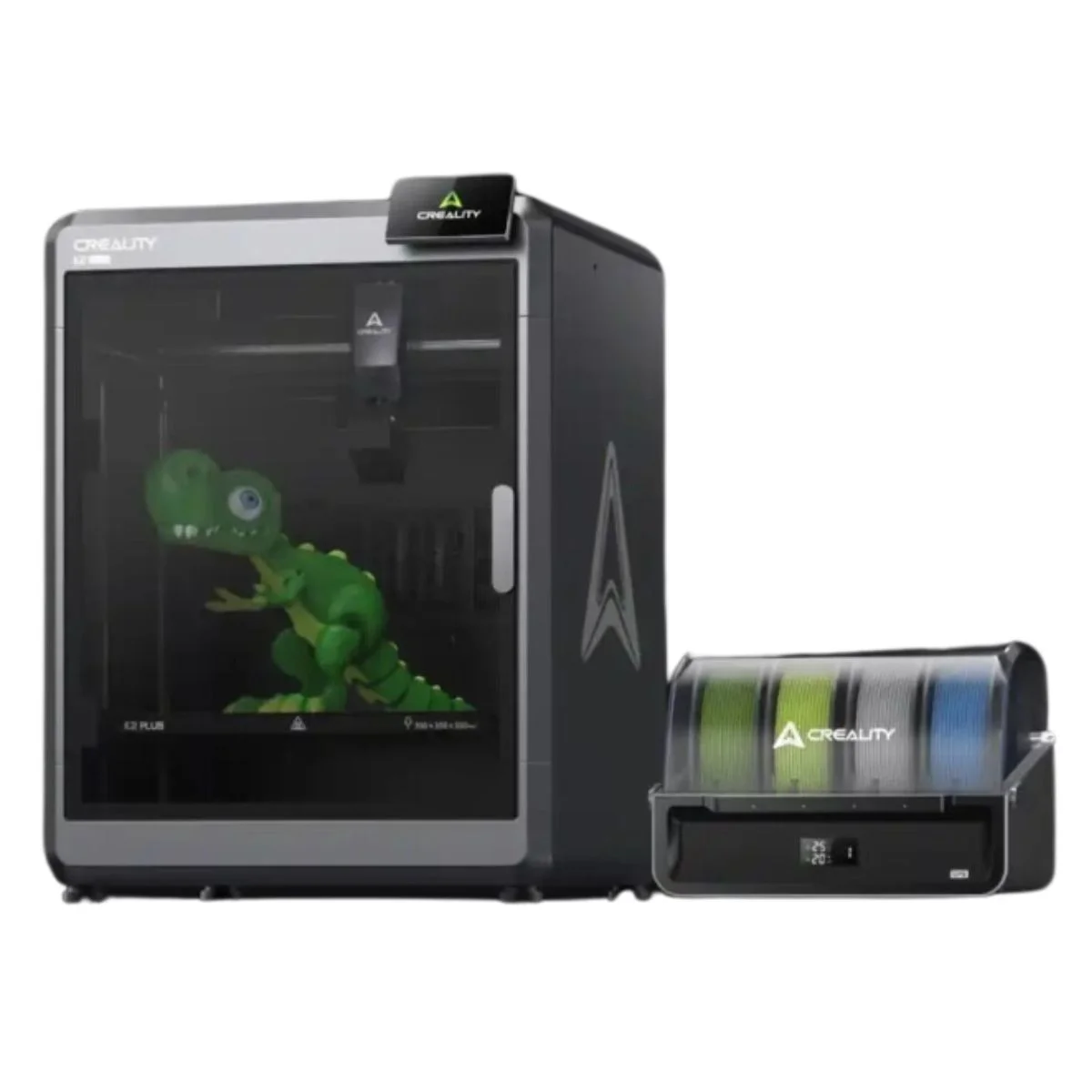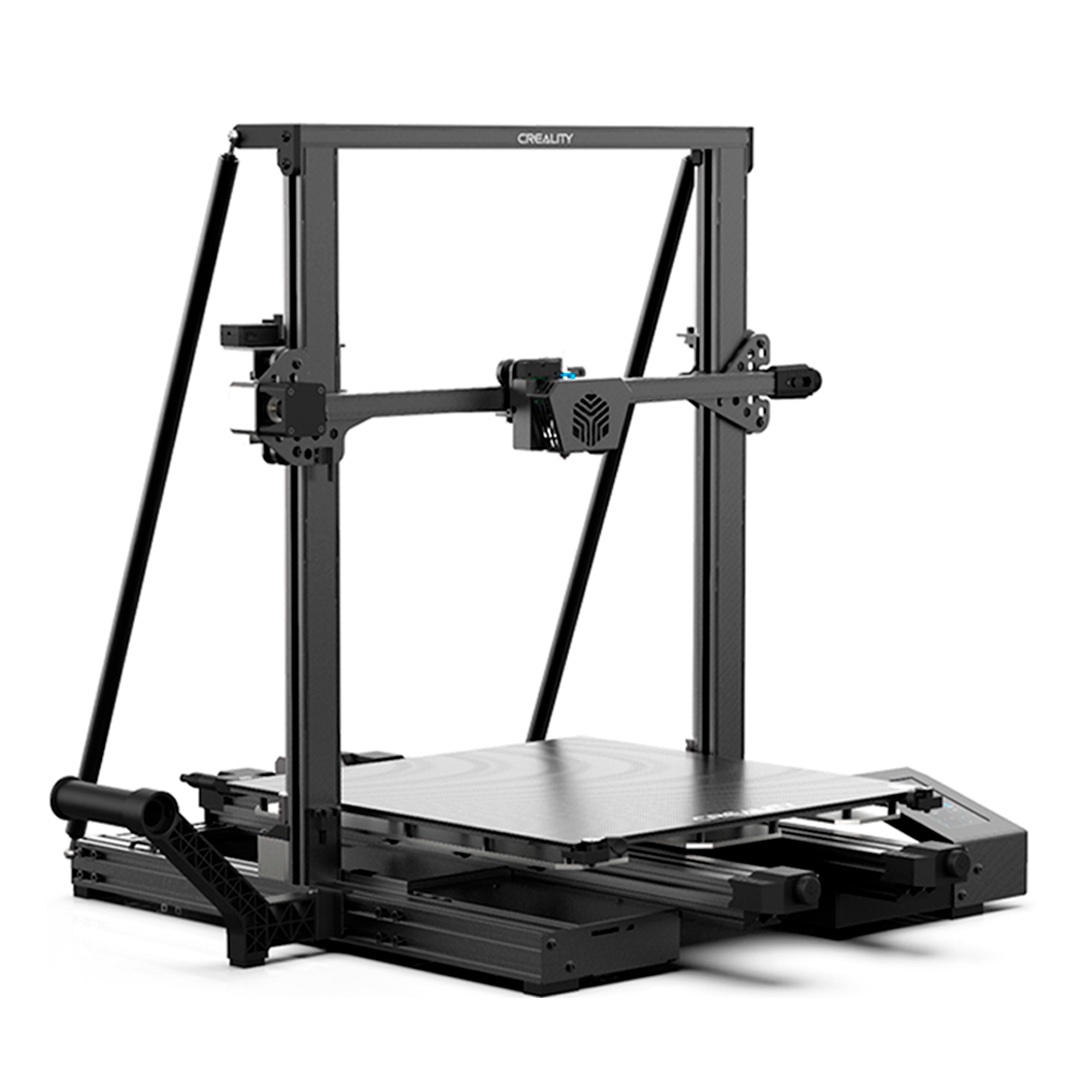Compare K2 Plus vs CR 6 Max
Comparison between the best 3D printers
Choose the best 3D printer at the best price. The cheapest 3D printers are here.
Buy a 3D printer here with 3D Fila.
 |
 |
|
| Model | K2 Plus[BUY K2 Plus] |
CR 6 Max |
| Printing Material | Filament | Filament |
| Buy Filament for Creality K2 Plus | Buy Filament forCreality 3D CR 6 Max | |
| Estimated price | $1500,00 | $700,00 |
| Manufacturer | Creality | Creality 3D |
| Release Year | 2024 | 2021 |
| Print Volume [mm] | 350x350x350 | 400x400x400 |
| Printer Size [mm] | 495x515x640 | 725x640x691 |
| Weight [kg] | 33,5 | 14 |
| Power Loss Recovery | YES | YES |
| Enclosed printer | YES | NO |
| Bed Leveling | Automatic | Automatic |
| Filament End Sensor | YES | YES |
| Bed type | Heated | Heated |
| Power supply system | Direct Drive | Bowden |
| Standard nozzle | 0,4 | 0,4 |
| Maximum Nozzle Temperature [°C] | 350 | 260 |
| Maximum Bed Temperature [°C] | 120 | 90 |
| Maximum printing speed [mm/s] | 600 | 100 |
| Filament holder | YES | YES |
| Camera for supervision | YES | YES |
| Recommended filaments | PLA, PETG, PET, TPU, PA, ASA, PC, PLA CE, PA-CF, PET-CF | PLA, PETG |
| Recommended slicers | Creality Print 5, Bambu Studio, Super Slicer, Cura, Prusa Slicer, Orca Slicer | Cura, Simplify, Slic3r, IdeaMaker |
| Maximum Resolution [mm] | 0,1 | 0,1 |
| Processor | ||
| Display | Touchscreen 4,3'' | Display touchscreen 4,3'' |
| Power Supply | 1200 W | 110/220V / 500W |
| Connectivity | USB / WIfi | SD / USB |
| Operating systems | Windows, Linux, Macbook | Windows, Mac, Linux |
| Date of registration in the system | 2024-06-26 | 2022-11-04 |
| Release date | 2024 | 2021 |
| Extra features | The Creality K2 Plus 3D Printer stands out for its multicolor printing, large build volume (350x350x350 mm) and Apus Direct Drive extruder with tri-metal protection nozzle. It features automatic anti-tilt leveling, FOC closed-loop motors and active chamber heating. In addition, it has an intelligent CFS filament management system, cameras for calibration and monitoring, a 4.3-inch touchscreen and advanced sensors to optimize the printing process. | Crealitys CR-6 Max printer offers a large 400 x 400 x 400mm build area, perfect for larger projects without dividers. Its auto-leveling system and force sensor simplify setup. It has a 4.3-inch touchscreen and convenient features like a tool drawer and filament holder. Plus, its modular hotend, redesigned extruder, and silicon carbide-coated build plate improve print quality. |
| Support for multiple colors and materials (AMS and CFS) | YES | NO |
Notes * |
||
| Cost-benefit | 7 / 10 | 6 / 10 |
| Hardware | 7.2 / 10 | 2.4 / 10 |
| Tela | . | . |
| Print volume | 4 / 10 | 4 / 10 |
| Performance | 5 / 10 | 1 / 10 |
| [BUY K2 Plus] |
Conclusion |
| Both the Creality K2 Plus and the Creality 3D CR 6 Max offer unique features tailored to different needs within the 3D printing community. The K2 Plus, while more expensive, provides a robust suite of advanced capabilities. Its larger print volume may appeal to users looking to create more intricate projects, and its support for multi-color printing and a wider range of materials makes it versatile. The automatic anti-tilt leveling feature, along with advanced sensors and intelligent filament management, optimizes the printing process for improved results. Additionally, the enclosed build chamber and higher maximum temperatures contribute to its ability to handle various filaments, further enhancing its value for serious users. On the other hand, the CR 6 Max stands out due to its larger print area and a lower price point, making it a more accessible option. It retains key features like automatic leveling and a user-friendly touchscreen interface. However, it lacks some of the advanced features found in the K2 Plus, such as multi-color support and higher temperature handling capabilities, which may limit its versatility in materials and applications. In summary, for users prioritizing advanced features, versatility, and higher performance, the K2 Plus is the clear choice, albeit at a higher investment. Conversely, for those seeking a capable printer at a more budget-friendly price, the CR 6 Max offers solid performance and a larger print area, making it a practical choice for hobbyists and those new to 3D printing. Your choice ultimately depends on your specific needs, budget, and intended use. |

